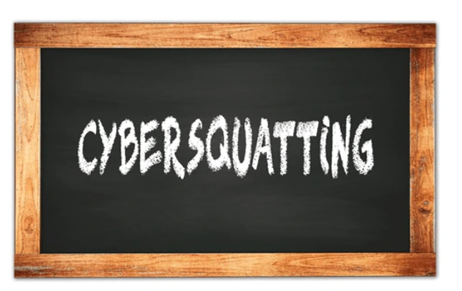Currently, semiconductors act as the foundation for advancements in the technological field such as smartphone…
Defamation in the Digital Age: Navigating Social Media, Blogs, and Legal Consequences
INTRODUCTION
Defamation in the digital era refers to the act of making false statements about someone that harm their reputation, particularly in the online realm. In the digital age, defamation occurs through various platforms like social media, blogs, and online forums. Unlike traditional forms of defamation, digital defamation spreads rapidly and can reach a vast audience instantaneously. It encompasses false statements, written or spoken, that injure a person’s character, integrity, or reputation. Key components of digital defamation include false information, publication to a third party, negligence, and resulting harm to the individual’s reputation. With the rise of user-generated content and anonymous online activity, distinguishing between genuine criticism, free speech, and defamatory statements has become more challenging. Defamation laws in the digital era vary across jurisdictions, and cases involving online defamation often involve complexities related to jurisdictional issues, the identity of anonymous users, and the interpretation of statements in the context of online communication. Navigating digital defamation requires a careful balance between protecting freedom of expression and holding individuals accountable for the consequences of their online statements.
- Social Media Defamation: The Power of Instant Sharing
As social media grows in popularity, so do its uses and abuses; anybody may exchange information or communicate while sitting in a distant part of the world. This may be a significant disadvantage since misunderstanding and false news spread with it. People accept what they see and hear without double-checking it; in such a situation, it is quite easy to harm someone’s reputation by convincing others of false and cruel statements. Individuals can share content, opinions, and allegations swiftly, reaching vast audiences. This speed amplifies the potential harm to a person’s reputation, making social media a powerful tool for both positive and negative influence.False statements, rumors, or malicious content shared on social media platforms can tarnish reputations, damage relationships, and even impact professional opportunities. The viral nature of social media means that once defamatory content is posted, controlling its dissemination becomes incredibly challenging.
[Image Sources: Shutterstock]

- Defamation on Blogs: Individual Bloggers and Corporate Entities
Defamation on blogs presents unique challenges in the realm of online communication. Bloggers are considered publishers, and like traditional journalists, they must uphold ethical standards. However, defining defamation in the context of opinionated content on blogs often involves legal complexities.
Individual bloggers might inadvertently cross the line between expressing personal opinions and making false claims, facing legal consequences if their statements harm someone’s reputation. On the other hand, corporate entities can be liable for defamatory statements made on their official blogs, even if the content was created by employees or users. Cases involving defamation allegations against bloggers vary widely. Some are based on the distinction between fact and opinion, while others are based on the interpretation of allegedly damaging statements. The legal complexities arise when deciding whether the content is genuine criticism, satire or a malicious lie. Courts often evaluate the context, intent and effect of statements to determine defamation, which makes these cases complex and multifaceted. Navigating the responsibilities and legal complexities of defamation on blogs requires a delicate balance between freedom of expression and responsibility. Bloggers and businesses should be aware of potential legal ramifications and emphasize the importance of ethical blogging practices and creating accurate and responsible content.
- Legal Consequences and case law
In India, defamation in the digital age is governed primarily by Sections 499 and 500 of the Indian Penal Code (IPC). These provisions apply to both traditional forms of defamation and digital platforms, including social media and blogs. Here’s how Indian legal provisions address defamation in the digital realm:
- Sections 499 and 500 of IPC: Under Section 499, defamation is defined as any imputation made with the intention to harm someone’s reputation or with knowledge or belief that it will harm their reputation. Section 500 prescribes the punishment for defamation, which may include imprisonment or a fine, or both.
- Online Defamation and Social Media: Indian law considers defamatory content shared on social media platforms as potentially falling under these provisions. Individuals posting defamatory statements on platforms like Facebook, Twitter, or Instagram can face legal consequences if the content harms someone’s reputation.
- Blogs and Online Content: Defamatory content published on blogs or other online platforms is also subject to these legal provisions. Bloggers can be held liable for defamation if their content damages someone’s reputation and meets the criteria outlined in Sections 499 and 500 of the IPC.
- Exceptions and Defenses: Indian law provides certain exceptions and defenses against defamation, including truth as a valid defense. If the statement made is true and can be proved, it might not be considered defamatory. Additionally, fair comment on a matter of public interest and good faith criticism can sometimes serve as defenses.
- Shreya Singhal V Union of India (2015)Section 66A of the Information Technology Act, 2000 is struck down in its entirety being violation of Article 19(1)(a) and not saved under Article 19(2).) Section 69A and the Information Technology (Procedure & Safeguards for Blocking for Access of Information by Public) Rules 2009 are constitutionally valid. Further, Section 79 is valid subject to Section 79(3)(b) being read down and so on.
- Rajiv Dinesh Gadkari through P.A. Depamala Gadkari vs Smt. Nilangi Rajiv Gadkari In this case, after receiving a divorce letter from her husband, the defendant filed a lawsuit against the man because he continuously harassed her by uploading vulgar photos and defaming her. The offense has already been registered and the maintenance is Rs. The husband (respondent) demanded 75,000 per month.
Indian legal provisions on defamation are applicable to digital platforms, ensuring that individuals and entities engaging in online communication are accountable for their statements. It is essential for individuals to be mindful of these laws and exercise responsible communication to avoid legal consequences related to defamation in the digital age.
- Defenses Against Defamation Claims: Truth, Opinion, and Public Interest
Defending against defamation claims involves understanding legal defenses that can shield individuals or entities from liability.In defamation cases, the burden of proving the claim is false is usually on the plaintiff. If the defendant can provide credible evidence that the facts of the statement are true, the court will likely rule in his favor. Opinions, unlike statements presented as verifiable facts, are generally protected by defamation laws. Courts distinguish between facts and opinions. Defamatory statements made in the public interest or as fair comment on matters of public interest are often protected. This protection is very important for journalists and public commentators who discuss matters of public importance. Courts recognize the importance of freedom of speech in such cases, as long as the statements are made responsibly and maliciously.
CONCLUSION
In the digital age, where information travels at the speed of light and anyone can be a publisher, understanding the nuances of defamation is more critical than ever. As we navigate the social media and blogging environment, it’s imperative to understand the legal complexities and ethical responsibilities that come with our digital voice. In this investigation into defamation in the digital age, we learned about the power and pitfalls of social media and blogging. These are platforms that have revolutionized communication, but have also increased the potential harm of fake or harmful content. Our journey through the legal consequences of defamation highlighted the importance of responsible expression.
As content creators, consumers, and digital citizens, it is our collective responsibility to uphold truth, respect diverse opinions, and consider the implications of our words. As we navigate the digital age, let us approach our online interactions with mindfulness and empathy. Let us champion truth, respect, and responsibility, fostering a digital environment where meaningful dialogue thrives, and where the power of free speech is balanced with a profound awareness of its legal and ethical dimensions.
Author: Shaili, A Student at NEW LAW COLLEGE, BVDU Pune, in case of any queries please contact/write back to us via email to chhavi@khuranaandkhurana.com or at IIPRD.



